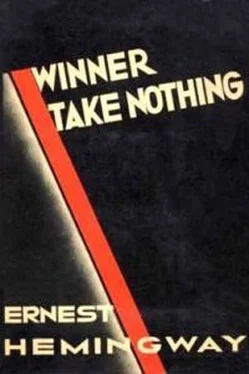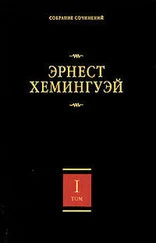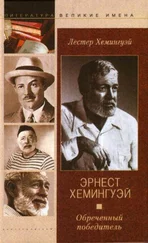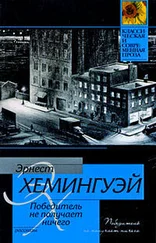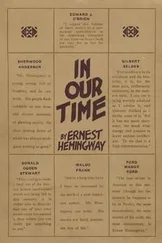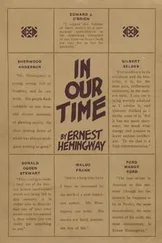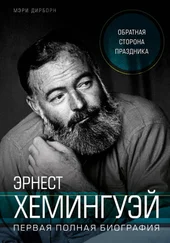Nick’s own education in those earlier matters had been acquired in the hemlock woods behind the Indian camp. This was reached by a trail which ran from the cottage through the woods to the farm and then by a road which wound through the slashings to the camp. Now he could still feel all of that trail with bare feet. First there was the pine needle loam through the hemlock woods behind the cottage where the fallen logs crumbled into wood dust and long splintered pieces of wood hung like javelins in the tree that had been struck by lightning. You crossed the creek on a log and if you stepped off there was the black muck of the swamp. You climbed a fence out of the woods and the trail was hard in the sun across the field with cropped grass and sheep sorrel and mullen growing and to the left the quaky bog of the creek bottom where the killdeer plover fed. The spring house was in that creek. Below the barn there was fresh warm manure and the other older manure that was caked dry on top. Then there was another fence and the hard, hot trail from the barn to the house and the hot sandy road that ran down to the woods, crossing the creek, on a bridge this time, where the cat–tails grew that you soaked in kerosene to make jack–lights with for spearing fish at night.
Then the main road went off to the left, skirting the woods and climbing the hill, while you went into the woods on the wide clay and shale road, cool under the trees, and broadened for them to skid out the hemlock bark the Indians cut. The hemlock bark was piled in long rows of stacks, roofed over with more bark, like houses, and the peeled logs lay huge and yellow where the trees had been felled. They left the logs in the woods to rot, they did not even clear away or burn the tops. It was only the bark they wanted for the tannery at Boyne City; hauling it across the lake on the ice in winter, and each year there was less forest and more open, hot, shadeless, weed–grown slashing.
But there was still much forest then, virgin forest where the trees grew high before there were any branches and you walked on the brown, clean, springy–needled ground with no undergrowth and it was cool on the hottest days and they three lay against the trunk of a hemlock wider than two beds are long, with the breeze high in the tops and the cool light that came in patches, and Billy said:
“You want Trudy again?”
“You want to?”
“Un Huh.”
“Come on.”
“No, here.”
“But Billy——”
“I no mind Billy. He my brother.”
* * * * *
Then afterwards they sat, the three of them, listening for a black squirrel that was in the top branches where they could not see him. They were waiting for him to bark again because when he barked he would jerk his tail and Nick would shoot where he saw any movement. His father gave him only three cartridges a day to hunt with and he had a single–barrel twenty–gauge shotgun with a very long barrel.
“Son of a bitch never move,” Billy said.
“You shoot, Nickie. Scare him. We see him jump. Shoot him again,” Trudy said. It was a long speech for her.
“I’ve only got two shells,” Nick said.
“Son of a bitch,” said Billy.
They sat against the tree and were quiet. Nick was feeling hollow and happy.
“Eddie says he going to come some night sleep in bed with you sister Dorothy.”
“What?”
“He said.”
Trudy nodded.
“That’s all he want do,” she said. Eddie was their older half–brother. He was seventeen.
“If Eddie Gilby ever comes at night and even speaks to Dorothy you know what I’d do to him? I’d kill him like this.” Nick cocked the gun and hardly taking aim pulled the trigger, blowing a hole as big as your hand in the head or belly of that half–breed bastard Eddie Gilby. “Like that. I’d kill him like that.”
“He better not come then,” Trudy said. She put her hand in Nick’s pocket.
“He better watch out plenty,” said Billy.
“He’s big bluff,” Trudy was exploring with her hand in Nick’s pocket. “But don’t you kill him. You get plenty trouble.”
“I’d kill him like that,” Nick said. Eddie Gilby lay on the ground with all his chest shot away. Nick put his foot on him proudly.
“I’d scalp him,” he said happily.
“No,” said Trudy. “That’s dirty.”
“I’d scalp him and send it to his mother.”
“His mother dead,” Trudy said. “Don’t you kill him, Nickie. Don’t you kill him for me.”
“After I scalped him I’d throw him to the dogs.”
Billy was very depressed. “He better watch out,” he said gloomily.
“They’d tear him to pieces,” Nick said, pleased with the picture. Then, having scalped that half–breed renegade and standing, watching the dogs tear him, his face unchanging, he fell backward against the tree, held tight around the neck, Trudy holding, choking him, and crying, “No kill him! No kill him! No kill him! No. No. No. Nickie. Nickie. Nickie!”
“What’s the matter with you?”
“No kill him.”
“I got to kill him.”
“He just a big bluff.”
“All right,” Nickie said. “I won’t kill him unless he comes around the house. Let go of me.”
“That’s good,” Trudy said. “You want to do anything now? I feel good now.”
“If Billy goes away.” Nick had killed Eddie Gilby, then pardoned him his life, and he was a man now.
“You go, Billy. You hang around all the time. Go on.”
“Son a bitch,” Billy said. “I get tired this. What we come? Hunt or what?”
“You can take the gun. There’s one shell.”
“All right. I get a big black one all right.”
“I’ll holler,” Nick said.
* * * * *
Then, later, it was a long time after and Billy was still away.
“You think we make a baby?” Trudy folded her brown legs together happily and rubbed against him. Something inside Nick had gone a long way away.
“I don’t think so,” he said.
“Make plenty baby what the hell.”
They heard Billy shoot.
“I wonder if he got one.”
“Don’t care,” said Trudy.
Billy came through the trees. He had the gun over his shoulder and he held a black squirrel by the front paws.
“Look,” he said. “Bigger than a cat. You all through?”
“Where’d you get him?”
“Over there. Saw him jump first.”
“Got to go home,” Nick said.
“No,” said Trudy.
“I got to get there for supper.”
“All right.”
“Want to hunt tomorrow?”
“All right.”
“You can have the squirrel.”
“All right.”
“Come out after supper?”
“No.”
“How you feel?”
“Good.”
“All right.”
“Give me kiss on the face,” said Trudy.
Now, as he rode along the highway in the car and it was getting dark, Nick was all through thinking about his father. The end of the day never made him think of him. The end of the day had always belonged to Nick alone and he never felt right unless he was alone at it. His father came back to him in the fall of the year, or in the early spring when there had been jack–snipe on the prairie, or when he saw shocks of corn, or when he saw a lake, or if he ever saw a horse and buggy, or when he saw, or heard, wild geese, or in a duck blind; remembering the time an eagle dropped through the whirling snow to strike a canvas–covered decoy, rising, his wings beating, the talons caught in the canvas. His father was with him, suddenly, in deserted orchards and in new–plowed fields, in thickets, on small hills, or when going through dead grass, whenever splitting wood or hauling water, by grist mills, cider mills and dams and always with open fires. The towns he lived in were not towns his father knew. After he was fifteen he had shared nothing with him.
Читать дальше
Конец ознакомительного отрывка
Купить книгу
